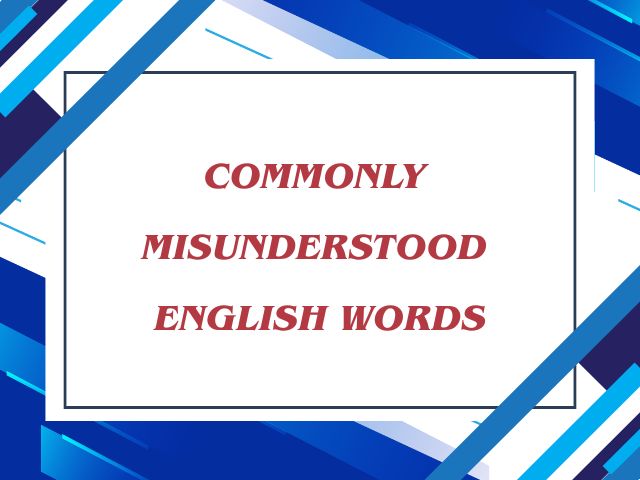Đọc Hiểu Và Sử Dụng Phù Hợp Lượng Từ (Quantifiers)
Trong luyện thi IELTS, việc hiểu và sử dụng phù hợp các loại lượng từ (quantifiers) như somebody, everything, …là rất quan trọng, đặc biệt trong phần IELTS Writing. Việc sử dụng chính xác các quantifiers này không chỉ giúp bạn trả lời đúng câu hỏi mà còn thể hiện khả năng văn phong và ngôn ngữ của bạn.
Việc hiểu và sử dụng chính xác quantifiers trong luyện thi IELTS Writing giúp tăng điểm cho bài viết của bạn và thể hiện khả năng sử dụng ngôn ngữ một cách linh hoạt và chính xác.
5. Với some, any, no và every, ta có thể kèm theo các từ như -body, -one, -thing và -where:
Did you hear something? I think I heard a knock, so perhaps there’s somebody at the door.
~ I didn’t hear anything and there’s no one outside.
Thực hành văn phạm
6. Ta sử dụng somebody / someone và anybody / anyone ám chỉ đến người. Ta sử dụng những chữ này theo cùng một cách ta sử dụng some và any:
Khẳng định: We need someone who speaks Chinese.
Phủ định: I haven’t spoken to anybody about the fire.
Câu hỏi: Does anybody live in that house?
Đề nghị/yêu cầu: Can I get you something to drink?
Everybody / everyone là số ít và ám chỉ đến tất cả mọi người trong một nhóm. Ta sử dụng những chữ này trước hoặc sau động từ:
We asked for volunteers and everybody was happy to help.
I’ve invited everyone from work to come to the wedding but I haven’t invited everyone I knew at school.
Ta sử dụng nobody / no one (hai chữ) trong câu có động từ khẳng định ám chỉ người.
Nobody has replied to my invitation.
7. Ta sử dụng something, anything, và nothing ám chỉ đến vật hoặc ý tưởng. Tình huống ta yêu cầu bạn bè giúp đỡ:
I need to ask you a favour. Can you do something for me?
~ I do anything I can! I’ve got nothing to do this afternoon.
Everything là số ít và ám chỉ đến tất cả các hạng mục trong một nhóm vật hoặc ý tưởng:
Everything in this house belongs to me!
8. Ta thường sử dụng somewhere, anywhere, nowhere và everywhere ám chỉ đến nơi chốn. Tình huống ta đang cố gắng tìm một vật đã bị mất:
I can’t find my bag anywhere and I’ve looked everywhere I can think off!
~ Now, don’t be so dramatic. It must be somewhere!
~ No, really, it’s nowhere to be seen.
9. Cần lưu ý là còn có cách sử dụng khác với any, anybody, anyone, anything, và anywhere. Ta sử dụng chúng trong câu khẳng định để chỉ rõ có sự tự do chọn lựa hoặc mọi thứ đều khả thi:
You can read any book from the top shelf.
(= You are free to choose which book you want.)
Anything would be more interesting than that new romance you’ve bought!
(= All the books would be better.)
Bài tập:
C. Quiz team
These are the five members of a team that is going to take part in a general knowledge quiz. Complete the questions and answers about the team using the words from the box.
Profession Hobbies / interests
Sara photographer fashion, astrology
Mike lawyer gardening, foreign films
Lester chef skiing, snowboarding
Mary chemist theatre
Ron astronomer languages
something nobody everything somebody everything anybody
anybody somewhere something anything anybody somebody
everything everywhere anybody everything everything
JANE Have you got (0) anybody who knows about fashion?
FRANK Yes, Sara reads all the magazines. She knows (1) . . . . . . . about the latest styles.
JANE You must have (2) . . . . . . . who knows about the universe, they often ask about the planets.
FRANK I think Ron knows (3) . . . . . . . about astronomy.
JANE Is there (4) . . . . . . . who knows (5) . . . . . . . about cinema?
FRANK Yes, Mike knows (6) . . . . . . . about it. He mostly watches European films though, I think.
JANE Have you got (7) . . . . . . . who works in politics?
FRANK No, we’ve got (8) . . . . . . . who actually works in politics. But Mike will know (9) . . . . . . . about current legislation from his work. He works (10) . . . . . . . in the city and he often meets members of the local council.
JANE You need (11) . . . . . . . who knows about sports.
FRANK Well, Lester knows (12) . . . . . . . about winter sports, he’s a fanatic! I’m sure he’s been skiing (13) . . . . . . . you can in Europe!
JANE Is there (14) . . . . . . . who knows about sciences?
FRANK Yes, Mary. And she also knows (15) . . . . . . . about theatre. She’s got an amazing memory.
JANE Great! Sounds like you’ve got (16) . . . . . . . covered. Good luck!
D. Advice from the Professor
A student wants to do a research degree and is talking to a university teacher in the coffee bar. Complete the dialogue by crossing out the wrong expression in each case.
STUDENT Hello Professor Ramsey. Would you like (0) some / any coffee?
PROFESSOR Yes, please.
STUDENT Milk or sugar?
PROFESSOR Just (1) a little / a few milk, but (2) any / no sugar. Oh, and a biscuit, please!
STUDENT I’m afraid there aren’t (3) any / some. I’ve looked (4) everywhere / somewhere but I couldn’t find any.
PROFESSOR That’s alright. I shouldn’t really eat (5) anything / nothing between meals.
STUDENT Please sit down (6) anywhere / nowhere that you’d like, Professor Ramsey. May I ask you (7) some / any questions about doing a research degree?
PROFESSOR Sure. Do you know (8) much / many about what’s involved?
STUDENT Well, I’ve thought (9) a lot of / a lot about it. I’ve read (10) everything / something on the university website and I’ve also spoken to (11) a few / a little students who have already started.
PROFESSOR Have you read (12) much / many research papers?
STUDENT Well, we had to read (13) a lot of / a lot them for our degree project.
PROFESSOR And have you written (14) any / some articles?
STUDENT (15) A few / A little, but (16) none / nothing that have been published, I’m afraid.
PROFESSOR Hmm . . .Well, you’re not an ideal candidate, but you can take the preparatory course, and I’ll take a decision after that.
Đáp án:
C.
1. everything 7. anybody 13. everywhere
2. somebody 8. nobody 14. anybody
3. everything 9. something 15. everything
4. anybody 10. somewhere 16. everything
5. anything 11. somebody
6. something 12. everything
D.
1. a little 7. some 13. a lot of
2. no 8. much 14. any
3. any 9. a lot 15. A few
4. everywhere 10. everything 14. none
5. anything 11. a few
6. anywhere 12. many
Nguyen Minh Son (15.06.2012)




